A sixteen-year-old’s flight from IS group through Europe
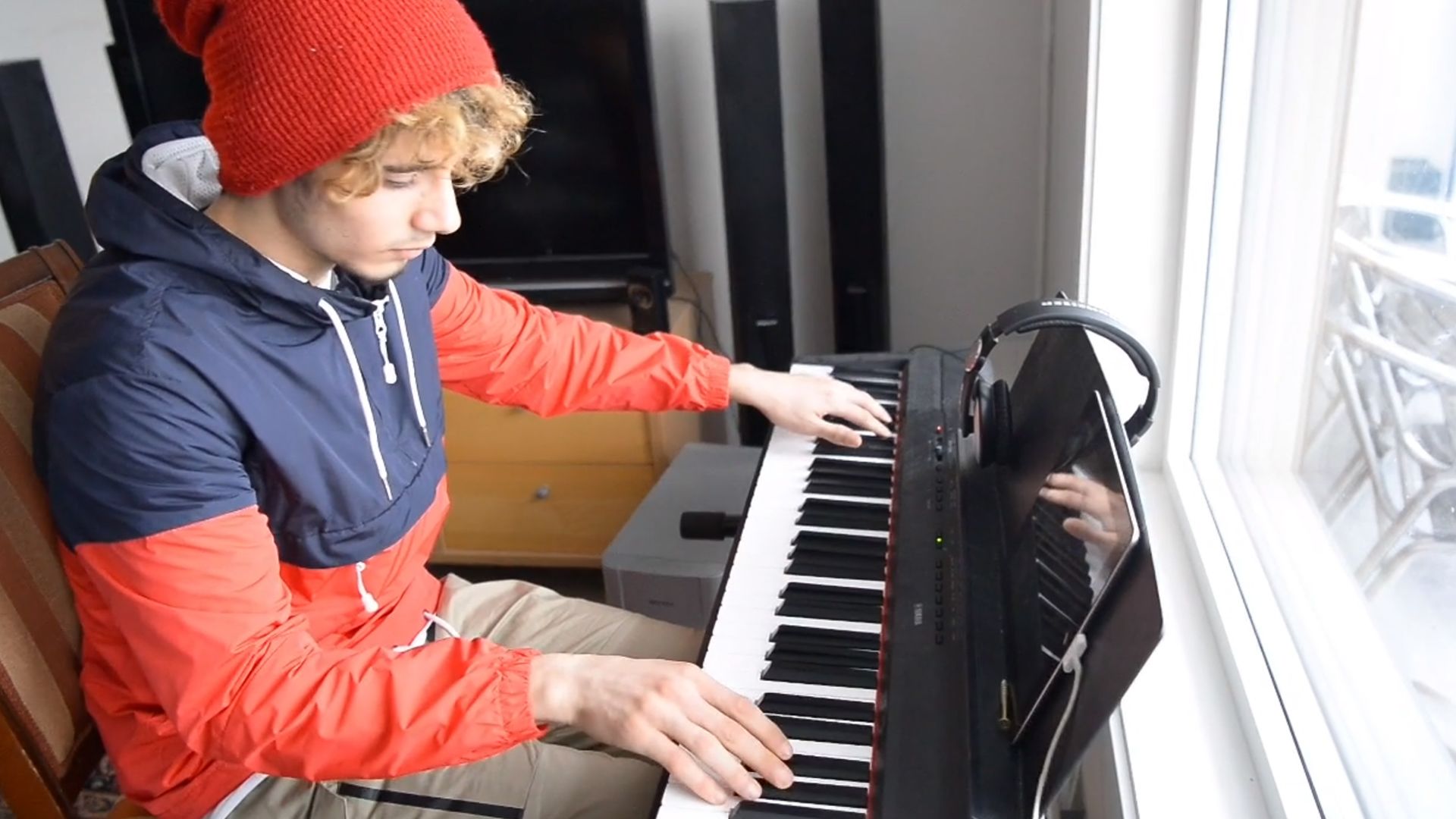
In 2013, then 16-year-old Mosab fled from Islamic State group in Syria. He travelled alone to through Europe, to Norway. Today, he lives in Oslo. He speaks Norwegian, goes to school, has two jobs – one paid and one as a volunteer – and he has learned to play the piano. But at night, he dreams that he is visited by the dead from the war.
One of those he sees in his nightmares is his friend, Ahmad. He was killed during an air raid. Mosab ran to help the many wounded and he found his friend dead.
He describes the eerie dream like this:
“My friend is very, very small. He has wings and flies around me. His mouth is open, full of blood.”
In his dreams, Mosab relives what he experienced in the war. Many of those who come to him in his nightmares were adults when they died, but in his dreams, they have become children. They are very small. They fly or creep in and out of his window.
“It is scary. When I wake up, I feel stressed. Afraid I’m going to have the same dream the next night.”
He adds:
“Lately, I have also started dreaming that people in Norway are letting me down. Like what I experienced when I fled Syria.”
Can we understand?
Those who know Mosab, 22, will describe him as a gentle, social and nice guy. He has a good sense of humour, is intelligent and musical. He is open, curious about the world. But he can also be a little reserved. Contemplative.
How does it affect you to see your own grandfather executed by IS in the square? What is it like to have your 14-year-old brother abducted by IS on his way home from school and later murdered? To have over 20 male relatives killed? How does it affect you to be whipped for smoking? Or to have big scars on your body from bomb fragments?
And this: Can we ever understand what it is like to leave a mother you love more than anything and your siblings – at the age of 16? What is it like to be forced to flee – all alone – in a foreign world? What is it like to trudge through Europe in the icy cold? With no belongings other than a pair of shoes, a pair of trousers, a jumper, a small backpack and a mobile phone – and living on two Snickers bars a day?
The Arab Spring
During 2010, a massive popular revolt against the authorities took place in several countries in North Africa. The following year, it came to the Middle East. It was dubbed the Arab Spring, and challenged authoritarian regimes with demands for democratic rights. In Syria, the demonstrations eventually turned to civil war.
Mosab’s home town of Manbij is located in northern Syria, not far from the Turkish border.
“At our house, the TV was always on. We only watched the news and we followed politics from when we were children. We realised that the Arab Spring would come to Syria too.”
The uprising came to Manbij in 2011. Since then, Mosab’s home town has been governed by three different regimes: Syrian opposition groups, IS group and Kurdish groups.
At Mosab’s place
Snowflakes fall silently from the sky, laying like a thick white blanket over spruce trees and an empty football pitch outside Mosab’s window. He goes out on the veranda to have a cigarette.
The wall of his apartment is decorated with two bell pulls. He has learned that bell pulls are typically Norwegian, and that’s why he has them on the wall. He wants to adapt to his new homeland.
There is also a framed piece of paper hanging on the wall. It holds personal greetings from the friends he made at a youth camp run by a Norwegian foundation called The Change Factory:
“Thanks for a great time, you’re really cool and so good at playing the piano.” “You’re a really cool guy. It’s been wonderful to hang out with you”. “You’re a lovely person. You are insanely wise and warm. Your energy and goodness spread joy to everyone. Thanks for everything!”
In the living room, there is a dining table with four chairs, a sofa and a coffee table. A keyboard stands under the window. In the kitchen, there are clothes on a drying rack. In the bedroom, a bed. Everything comes from a second hand shop:
“I got the furniture because I helped out in the shop,” he explains.
Do you have anything from Syria?
“No. Nothing.”
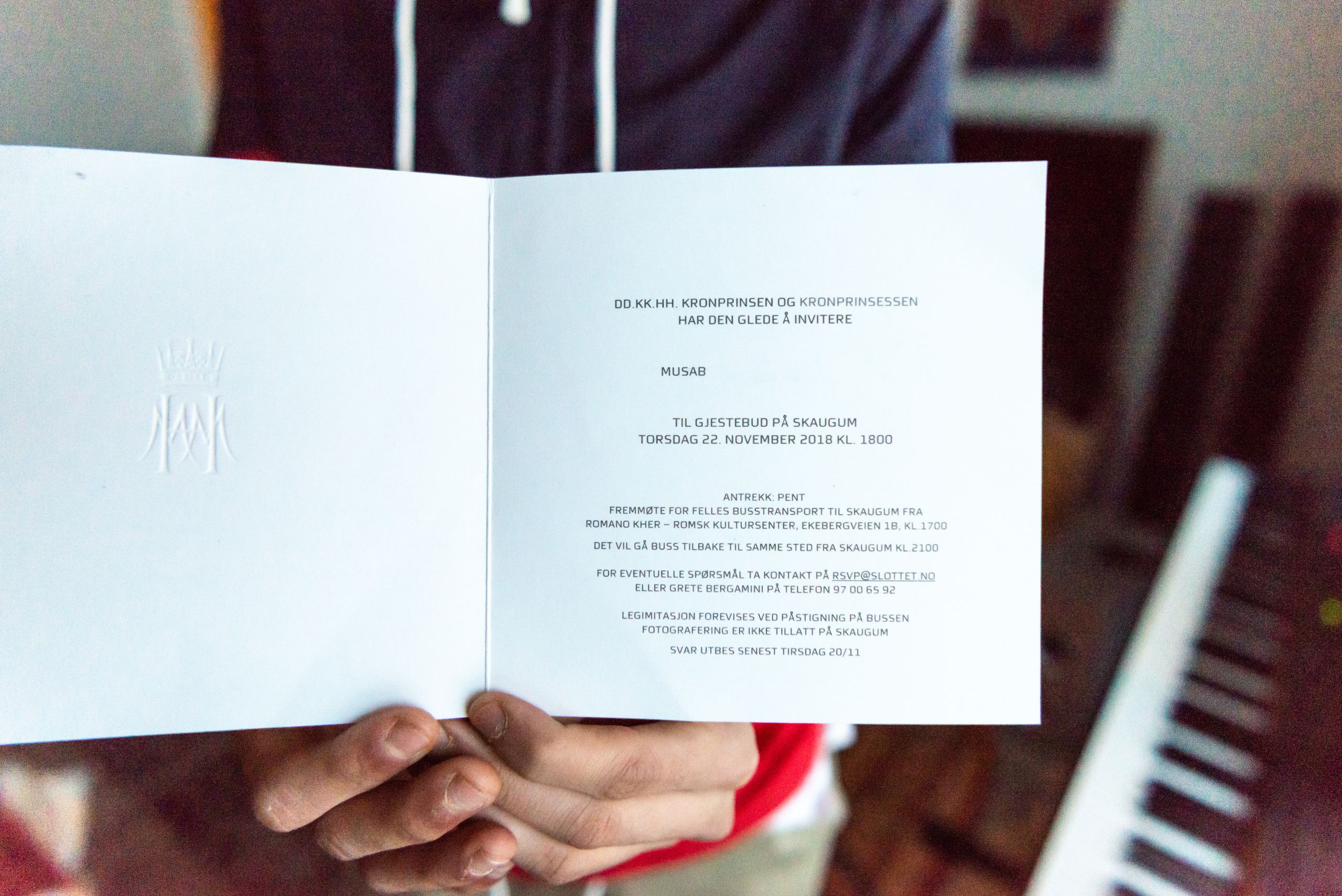
Mosab works as a volunteer to help people in Norway. The invitation is to Mosab from The Royal Palace.
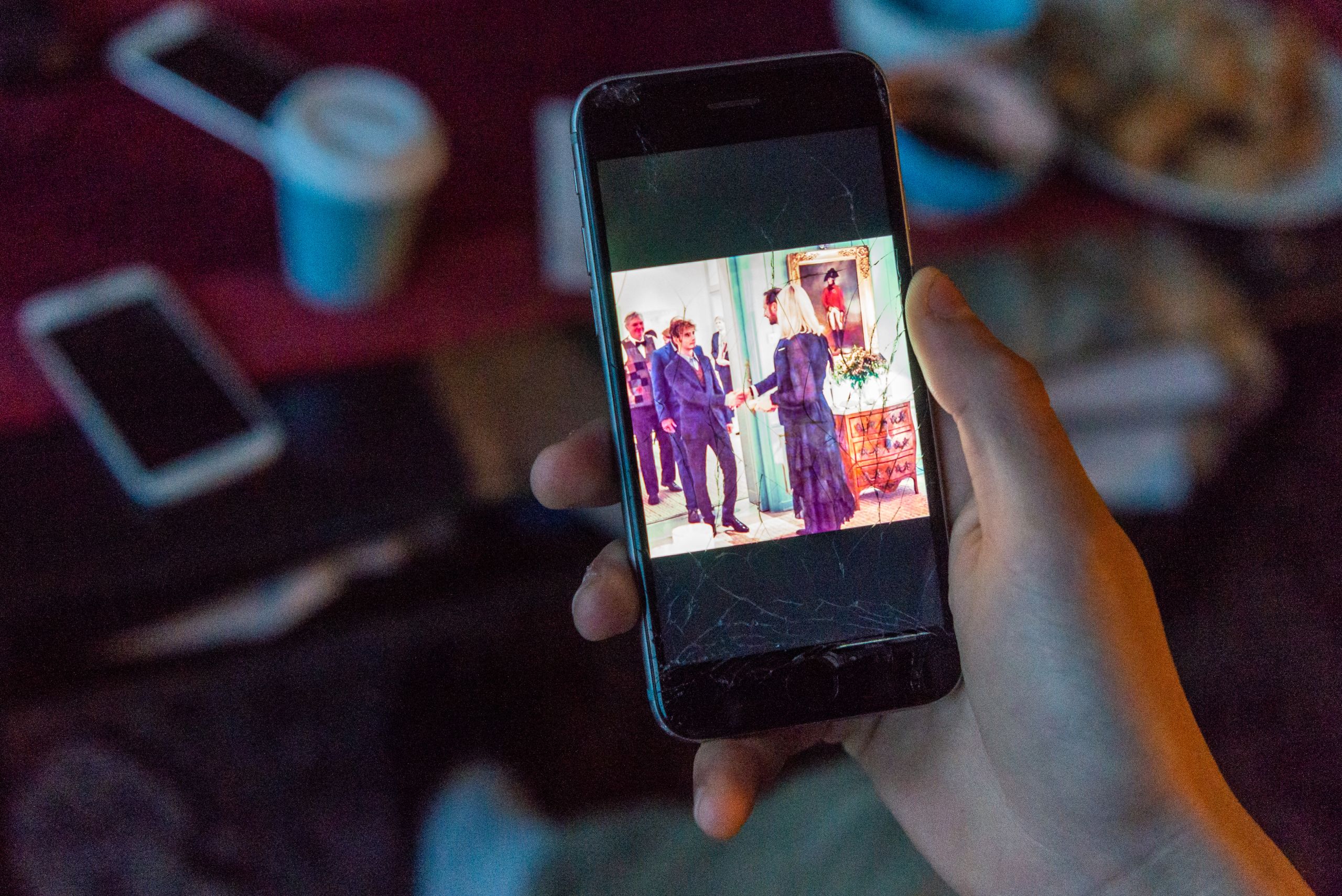
For his efforts, he was invited to the Royal Palace to meet the Crown Prince and Crown Princess. Crown Prince Haakon is also the Royal Patron of the Norwegian Refugee Council.

Mosab works as a volunteer to help people in Norway. The invitation is to Mosab from The Royal Palace.
Mosab works as a volunteer to help people in Norway. The invitation is to Mosab from The Royal Palace.

For his efforts, he was invited to the Royal Palace to meet the Crown Prince and Crown Princess. Crown Prince Haakon is also the Royal Patron of the Norwegian Refugee Council.
For his efforts, he was invited to the Royal Palace to meet the Crown Prince and Crown Princess. Crown Prince Haakon is also the Royal Patron of the Norwegian Refugee Council.
“All by myself”
“Growing up was the best time in my life. But of course, not everything was wonderful all the time. You know the feeling that you are nothing? I felt like that many times. I think it was because I came from a poor family. Because we didn’t have everything we needed, some people felt like they were – like – better than us. It’s hard when you see that the other kids have everything and you know that you don’t.”
He gets up from his chair and goes out into the kitchen to slice some bread. He comes back and puts out a platter of bread on the coffee table, along with three small bowls of different dips. One of the dips he made himself:
“I eat healthy food. When I came to Norway I couldn’t even boil an egg. I was the youngest at the asylum reception centre, and I was always in the kitchen watching the ladies cook.”
Did the women take care of you?
“If I asked for help. But I didn’t want to be a nuisance. I was ‘all by myself’.”
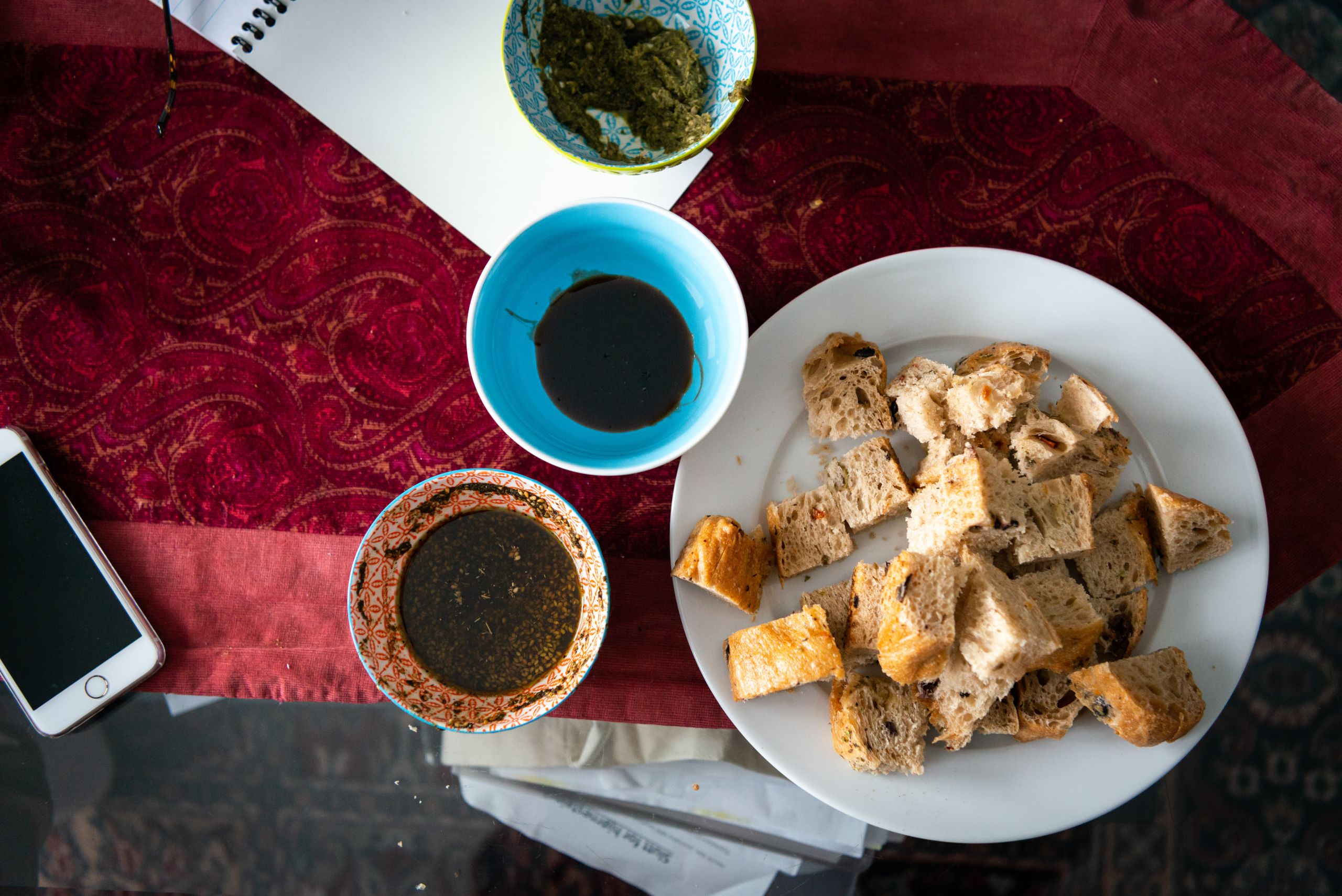
Mosab serves bread with dip, and says: “I eat healthy food. When I came to Norway I couldn’t even boil an egg. I was the youngest at the asylum reception centre, and I was always in the kitchen watching the ladies cook.”
Mama
Mosab comes from an Arab family. His father was an engineer and an artist. His mother was a housewife. His parents later divorced and his father is now living in the United States.
Mosab has a big family. He and his twin brother are the oldest. He also has two younger brothers – only one of them is still alive – and two sisters.
“My twin brother and I were among the best at school. I especially liked math and philosophy. Philosophy because you learn that there are many ways to think. It’s useful. I study the people I talk to,” he says, and says that he also enjoyed having part-time jobs after school. He sold bread, cigarettes or worked at construction sites. He gave the money to his mother.
Mosab missed out on secondary school in Syria, but he is making up for it in Oslo. He has a weekend job at a chocolate factory in the town of Gjøvik, a couple of hours outside of Oslo. He sends half his salary to his mother, Mona.
How would you describe her?
“My mother…”
He starts crying. After a while he says:
“She’s everything.”
Do you talk to her often?
“About every three days on WhatsApp, if they have an internet connection. My mother has beautiful brown eyes. Her hair is black. She’s not so tall, she’s neither fat nor thin, she’s kind of in between. If anyone needs anything, she gives away everything she has. My mother is everything to me.”
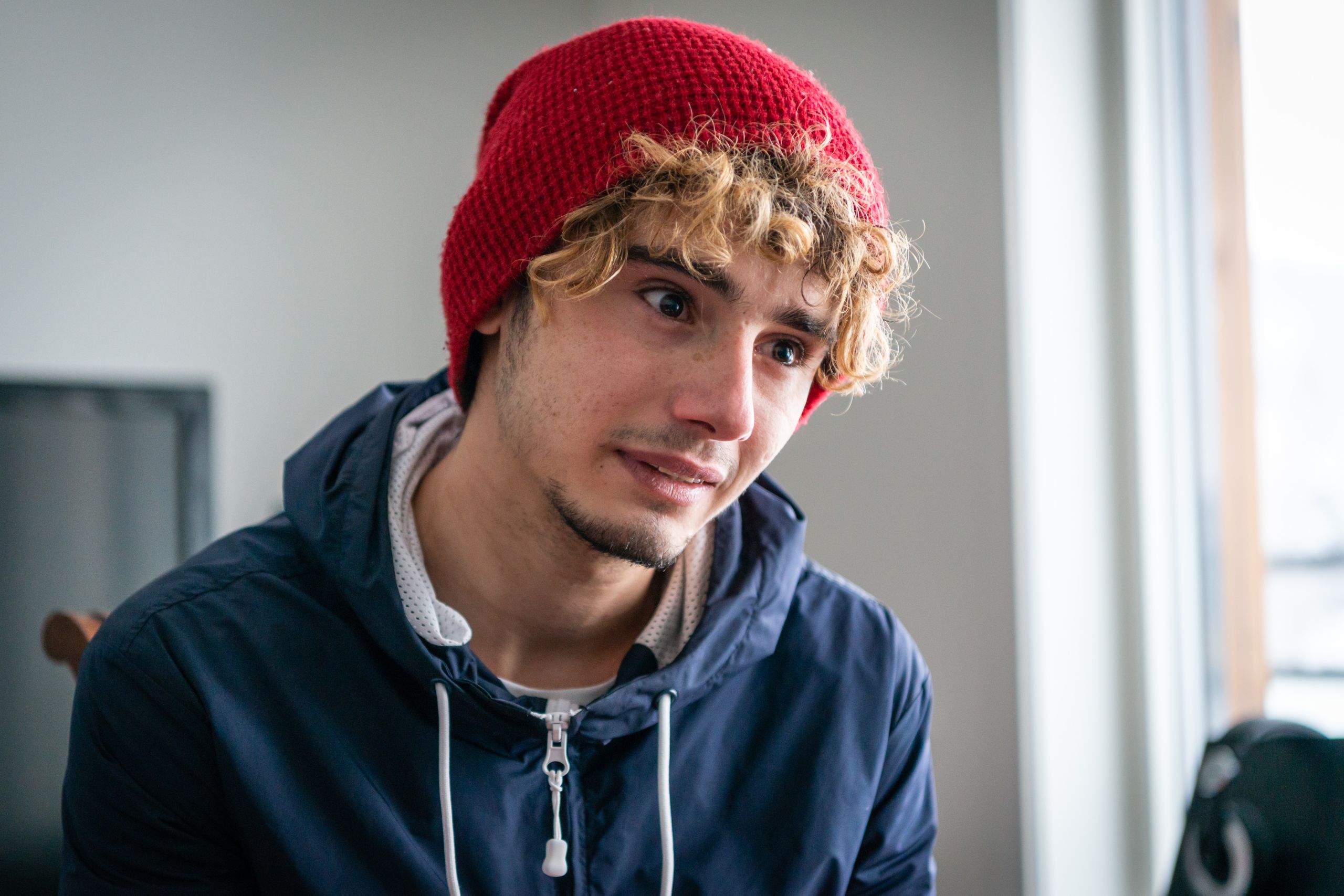
“My mother is everything to me,” says Mosab. He hasn’t seen his mother since 2013, but he talks to her about every three days.

Mosab serves bread with dip, and says: “I eat healthy food. When I came to Norway I couldn’t even boil an egg. I was the youngest at the asylum reception centre, and I was always in the kitchen watching the ladies cook.”
Mosab serves bread with dip, and says: “I eat healthy food. When I came to Norway I couldn’t even boil an egg. I was the youngest at the asylum reception centre, and I was always in the kitchen watching the ladies cook.”

“My mother is everything to me,” says Mosab. He hasn’t seen his mother since 2013, but he talks to her about every three days.
“My mother is everything to me,” says Mosab. He hasn’t seen his mother since 2013, but he talks to her about every three days.
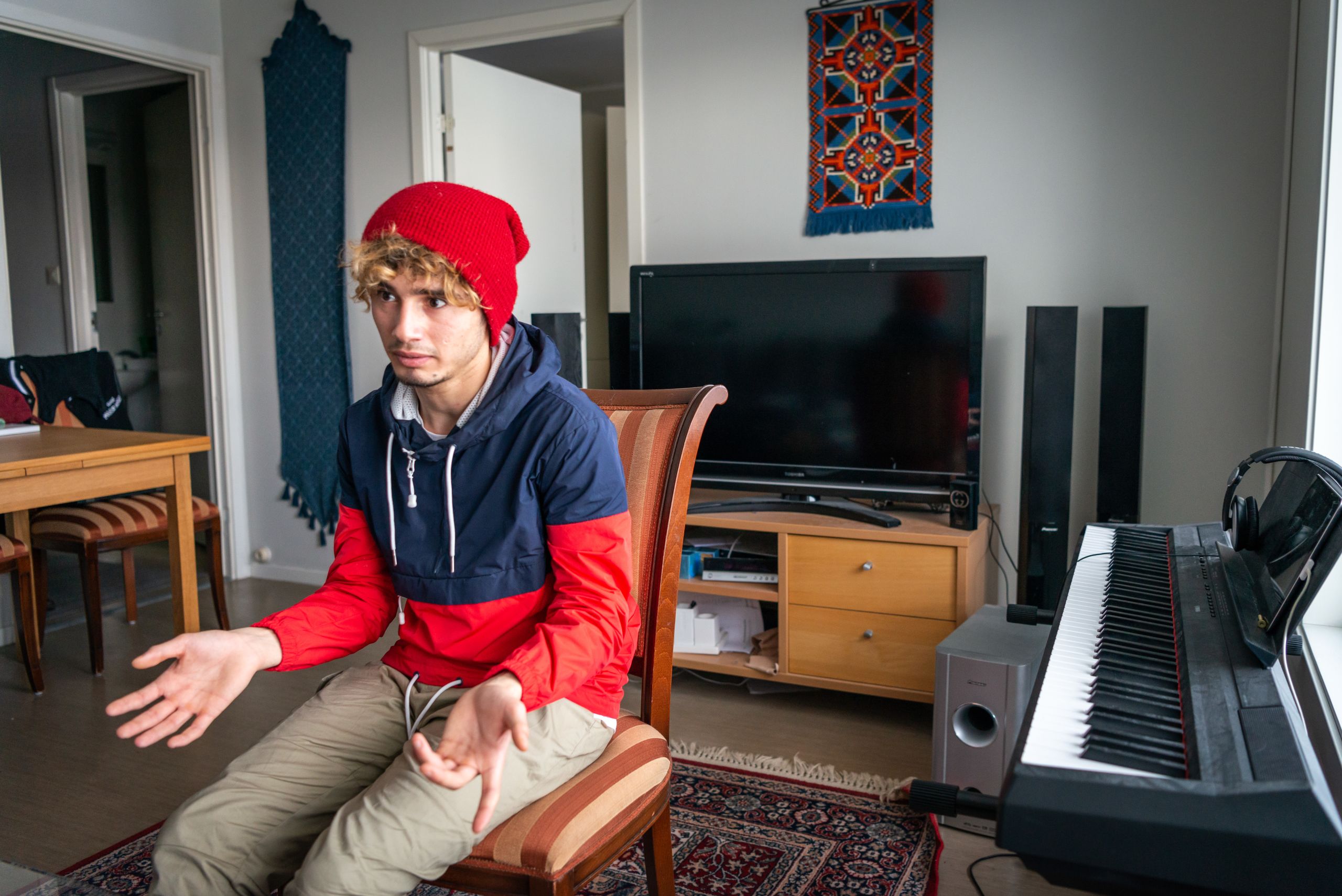
One day IS was in his hometown: “Suddenly, there were men in black walking around in our streets,” Mosab says.
One day IS was in his hometown: “Suddenly, there were men in black walking around in our streets,” Mosab says.
When IS came
Suddenly, they were there – in matter of hours.
“We didn’t know anything in advance. We just went to bed in the evening and the next day they were there. Suddenly, there were men in black walking around in our streets. At first there were not so many of them and they tried to give the impression that they were kind. For example, they gave money to the poor. But we weren’t stupid. We knew that they were dangerous,” says Mosab.
His family followed the news and were well acquainted with the situation in Iraq. They knew about al-Qaeda and IS – that they were kind of the same. That both were dangerous.
Were you scared?
“No,” he answers and continues:
“But one day they caught me. I was driving around on my motorcycle, smoking a cigarette. A car came up beside me, I didn’t know it was them. Then the car started following me, and I saw who it was in the mirror. So I discreetly threw away my cigarette and stopped the bike.

The IS men said: ‘Get off the bike. Where’s your cigarette?’ I replied that I didn’t have any cigarettes. They searched me and found nothing. But they could smell the smoke on me. So they took me to a makeshift prison where there were many other prisoners.”
There, he was sentenced to thirty lashes.
“I’d been given a beating before, and I didn’t really care. Although it was going to hurt, I knew I wasn’t going to die,” he says.
Fortunately, he was allowed to keep his clothes on during the lashing:
“Afterwards I had to read Hadith [stories of the life and teachings of the Prophet Muhammad which are highlighted as examples of what is right and a good way of life, Ed.].”
He was released the next day. Mosab decided to lie low.
The biggest loss
Mosab’s younger brother Sahib, had been in Aleppo to take an exam. On the way back home, he and over ninety other students were taken hostage by IS. Several of the students were Kurds. Mosab believes it was a retaliatory action after fighting with Kurdish militias.
“Some of the students disappeared. Some were killed. Some came back to their families,” he says.
There was a square in the middle of the city where IS executed people. When there was a crowd of people, everyone knew that someone was about to die.
“Someone said that Sahib had been killed in that place. His body was never returned to us. My brother and I were very close, we shared everything. It was very hard to lose him.”
It was after that incident that Mosab began to think: “Could IS decide to take me too?”
Then they killed his grandfather:
“Grandfather was dragged to the place of execution. I think they must have drugged him or something, because he was walking like a drunk person. They put his head on the block. A big man with an axe chopped his head off. I saw it myself.”

Mosab spreads his arms in a gesture of desperation:
“But it wasn’t just grandfather who was killed that way. Many of my uncles too, and two of my cousins.”
He didn’t cry when he saw his grandfather die:
“The most important person for me was Sahib. Losing him was the worst thing in the world. After that, my heart was somehow broken. So I no longer cry when someone dies. I feel very sad. But that’s it. The only person I ever cry over is my mother. She’s the only one.”
“When I wake up, I feel stressed. Afraid I’m going to have the same dream the next night.”
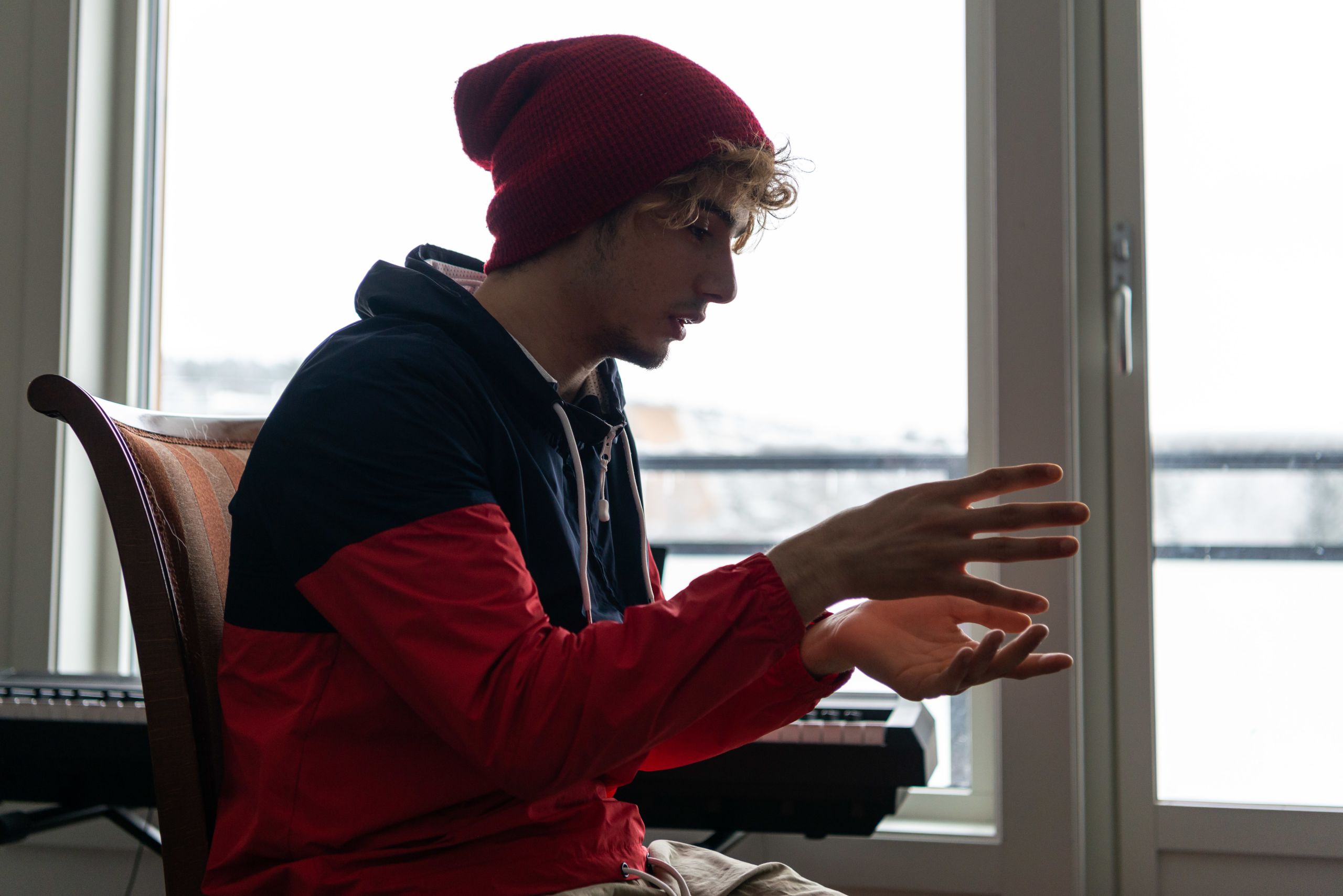
Had to flee from Syria
When Mosab left his homeland in 2013, he knew was finished with Syria.
Did you have any money?
“No money.”
Then followed nearly a year of hardship. He lived in the rubbish on the street. He was both cheated and robbed. He lived off of collecting empty bottles. Eventually he got a few jobs. He worked in a Turkish bath and in a shop. He worked as a bricklayer, a painter and fruit picker. He learnt fluent Turkish in six months.
In the city of Adana, he heard that many Syrians went to Germany. He started thinking that maybe Europe held his best chances at getting the best out of his life.
The Turkish city of Edirne is located on the border between Bulgaria and Greece. There, Mosab worked for a time as a waiter in a restaurant.
“I got to know a man who took refugees from Turkey to Albania and beyond. I told him I wanted to go too.”
One night he got his chance. Mosab was in a group of about 20 people – mostly women and children. Their goal was Albania. But after walking through the woods for an hour and a half, they were captured by brutal Albanian soldiers and returned to Turkey.
How much did you pay the people smuggler?
“Nothing. Before I got to know him, I thought he was poor, so I gave him some free food from the restaurant. He wanted to be kind to me in return.”
Syria II, Composed by Mosab from NRC on Vimeo.
Big responsibility
In the Turkish city of Izmir, Mosab got to know a man who was planning to go to Europe.
“He suggested that I go too. When I said I didn’t have the money, he said: ‘But if you drive the boat, you don’t have to pay.’ He explained to me that the people smugglers don’t come on the boat.”
Mosab decided to try again. One night, he and about 30 other people were transported to a deserted location.
“But then I got scared. Once in Edirne, I heard someone say that people smugglers kill people and sell their organs. I called my mother and said that if you don’t hear from me anymore, I’m dead. I said: ‘I love you, pray for me.’ She cried.”

The men had guns. The refugees were placed in cars. They sat very cramped and drove for a long time on bumpy roads until they came to a place with mountains. Below was the sea. Calm as a mirror.
“It was a beautiful place. But the men were dangerous. A father of a family had words with them when he saw the boats, but he had to give up so as not to be shot. They used their guns if anyone protested. We realised we couldn’t change our minds. Either you went on, or you were killed.”
There were two plastic boats.
“I thought there would be seven people in the boat I was going to drive. Suddenly, we were 30–40 people in each boat.”
Mosab had never driven a boat before. But it turned out to be easy – all he had to do was push the handle. He tried it a bit without passengers.
“But I was very stressed. Because I was going to have so many passengers. Many children. Families. Lives that I would be responsible for. I tried to calm myself down: ‘We only live once, I’m not going to miss this chance. I have no choice. There’s no turning back. But I will do my very best and we’ll make it.’”
Against all odds
They had said that the boat trip from Izmir would take 50 minutes. Mosab prayed to God the entire time.
“The boat was so full of people that they were almost sitting on top of each other. The motor wasn’t strong enough. After ten minutes it stopped. Everyone had to sit still while I tried to get the motor going again. I managed and we drove on.
“Then suddenly, in the middle of the sea, on the border between Greece and Turkey, it stopped. Then we saw a Turkish military boat coming towards us. People panicked, cried and screamed. I just had to get the motor going. A man helped me.”
The water started getting rough. The man showed Mosab how to angle the boat through the waves. Mosab tried to reassure the passengers by constantly telling them to think of anything but the sea. He wanted them to sit still.
The Turkish police were coming closer and closer. When they were only five or six hundred metres away, the motor suddenly roared to life again.
They got over to the Greek side.
“People started shouting for joy and singing. Those who had a GPS called the Greek military to report our arrival. I was very relieved. Because I had a great responsibility – they are people! 35 people! I had saved them in a way. Even though I was just a teenager.”
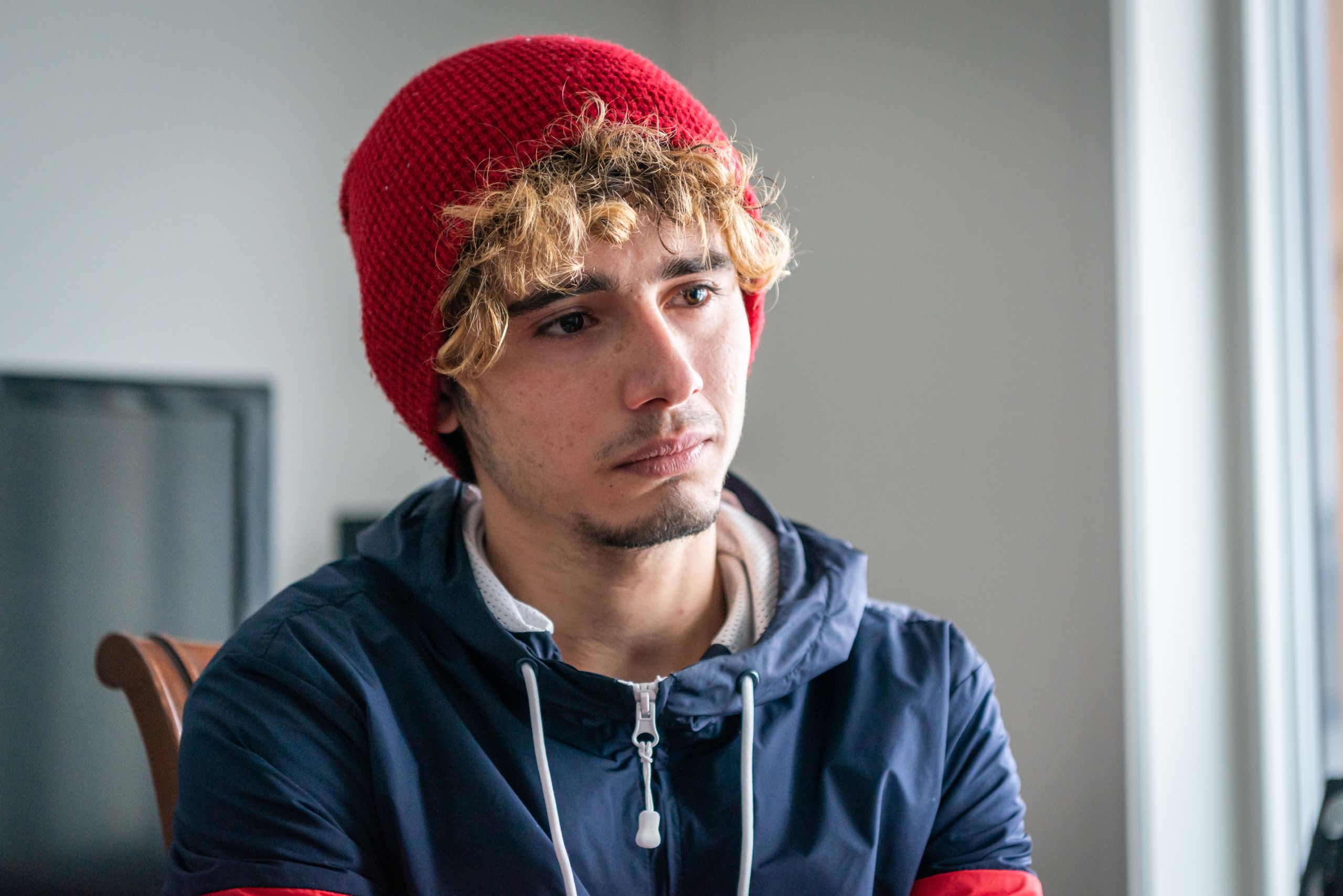
In Turkey, Mosab learned that human traffickers kill refugees and sell their organs. He called his mother: “If you don’t hear from me anymore, I’m dead.”
Two chocolates a day
Greece, the island of Lesbos. There were many other refugees. Tents and queues.
One of the Greek soldiers had Turkish background. He asked: “Do you speak Turkish?”
“I could. I like talking to people. And especially then, after all that I had experienced,” Mosab says and smiles.
The soldier helped him obtain a document he needed to leave Greece. Everything happened very fast. After just a couple of hours, Mosab was sitting on a ferry over to Athens. From there, he had been advised to take a bus to Macedonia. Then he would have to walk. His goal was Germany.
He walked in an endless line of people.
“I had a small bag of Snickers chocolates. I lived on two per day. All I had were the clothes on my back. I wore the same shoes that I had bought in a second hand shop in Syria.”
At night he slept as little as possible, only three to four hours.
“The hardest place we came to was Slovenia. It was so cold. I saw several children who froze to death. It was horrible. Poor people. In despair, people burned everything they owned to get a little warmth – even their mobile phones. I thought I was also going to die in Slovenia. I was only wearing trousers and a thin jumper. I hadn’t eaten for many days either. We got no help from the Slovenes. Zero help.”
In Serbia, people released droves of pigs in the road front of the refugees, who they knew were Muslims. They wanted to stop the refugees from coming.
“But I didn’t care, I just kept walking,” Mosab says.
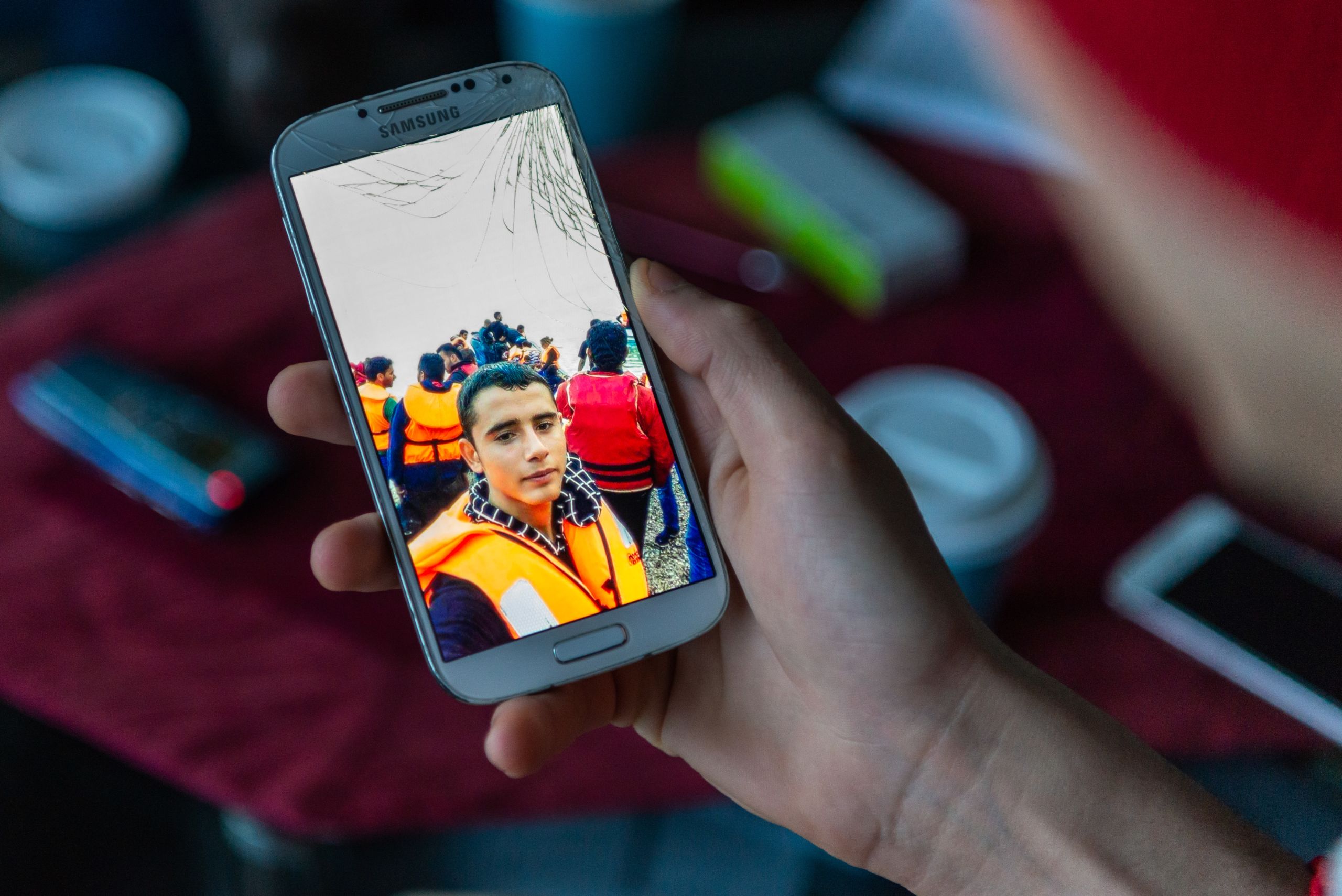
Mosab on the Greek island of Lesbos, just after he and the other refugees survived the dangerous boat crossing.
Through Europe
He walked through Macedonia, Serbia, Croatia, Slovenia, Austria and finally came to Germany – more specifically Munich.
“I think it took about 18 days. I don’t remember exactly. You don’t have time to think about how many days or hours it takes. You just keep walking.
“But I thought about my family. I thought about the day I would call home and say I was okay. I sent a message to my mother from Germany. She was so happy. I wrote where I was, that I was fine and I was safe.”
The refugees received a lot of help both in Germany and in Austria: Food, clothing, showers and a place to sleep.
“It was like coming from hell to paradise,” says Mosab.
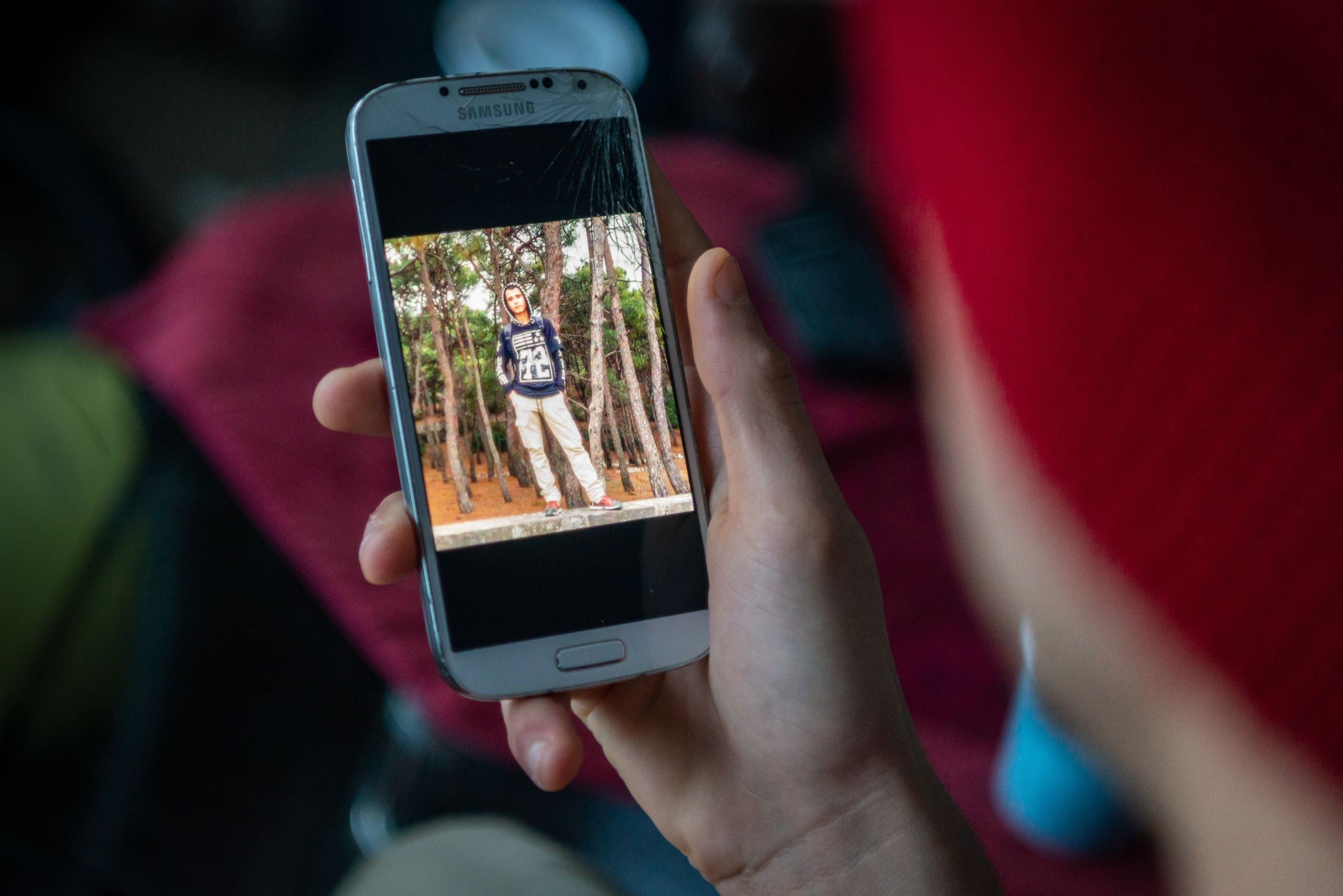
These shoes and clothes were all he had, as he made his way to Norway through Europe in the icy cold.

In Turkey, Mosab learned that human traffickers kill refugees and sell their organs. He called his mother: “If you don’t hear from me anymore, I’m dead.”
In Turkey, Mosab learned that human traffickers kill refugees and sell their organs. He called his mother: “If you don’t hear from me anymore, I’m dead.”

Mosab on the Greek island of Lesbos, just after he and the other refugees survived the dangerous boat crossing.
Mosab on the Greek island of Lesbos, just after he and the other refugees survived the dangerous boat crossing.

These shoes and clothes were all he had, as he made his way to Norway through Europe in the icy cold.
These shoes and clothes were all he had, as he made his way to Norway through Europe in the icy cold.
Through Europe on snickers from NRC on Vimeo.
“Have a nice day”
In Berlin, he met a Kurd who said it would be best to go to Norway.
“I said: ‘Where is Norway? Show me.’ And he showed me Norway on the map. Then I remembered an episode from when I was in sixth grade. I was leafing through an atlas, life was a little difficult right then and I remember saying: ‘I will travel to that country there.’” His index finger had randomly ended up in Norway.
The man gave him money for a boat ticket from Germany to Sweden. Mosab would take a bus to Malmö. But first, he had to take a bus to Travemunde to buy a boat ticket at the harbour.
“In the ticket office, they wanted to see my passport. I gave the man in the ticket booth my Syrian passport. He smiled and laughed and did nothing with the passport. He just gave it back to me with the ticket. I think he helped me. Because everyone else got a stamp in their passport. He just said: ‘Have a nice day.’”
It was nice to travel on such a big boat.
“They wanted to keep me in Sweden, but I had decided on Norway. There were police all around us. Everyone had to give their fingerprints. I was small and it was easy to slip away.”
Then Mosab met a man who spoke Arabic:
“I told him I had run away from the police because I wanted to go to Norway. I said: ‘Please help me.’ He said I should stay in Sweden, that it is a good place. But I said no, I’m going to Norway.”
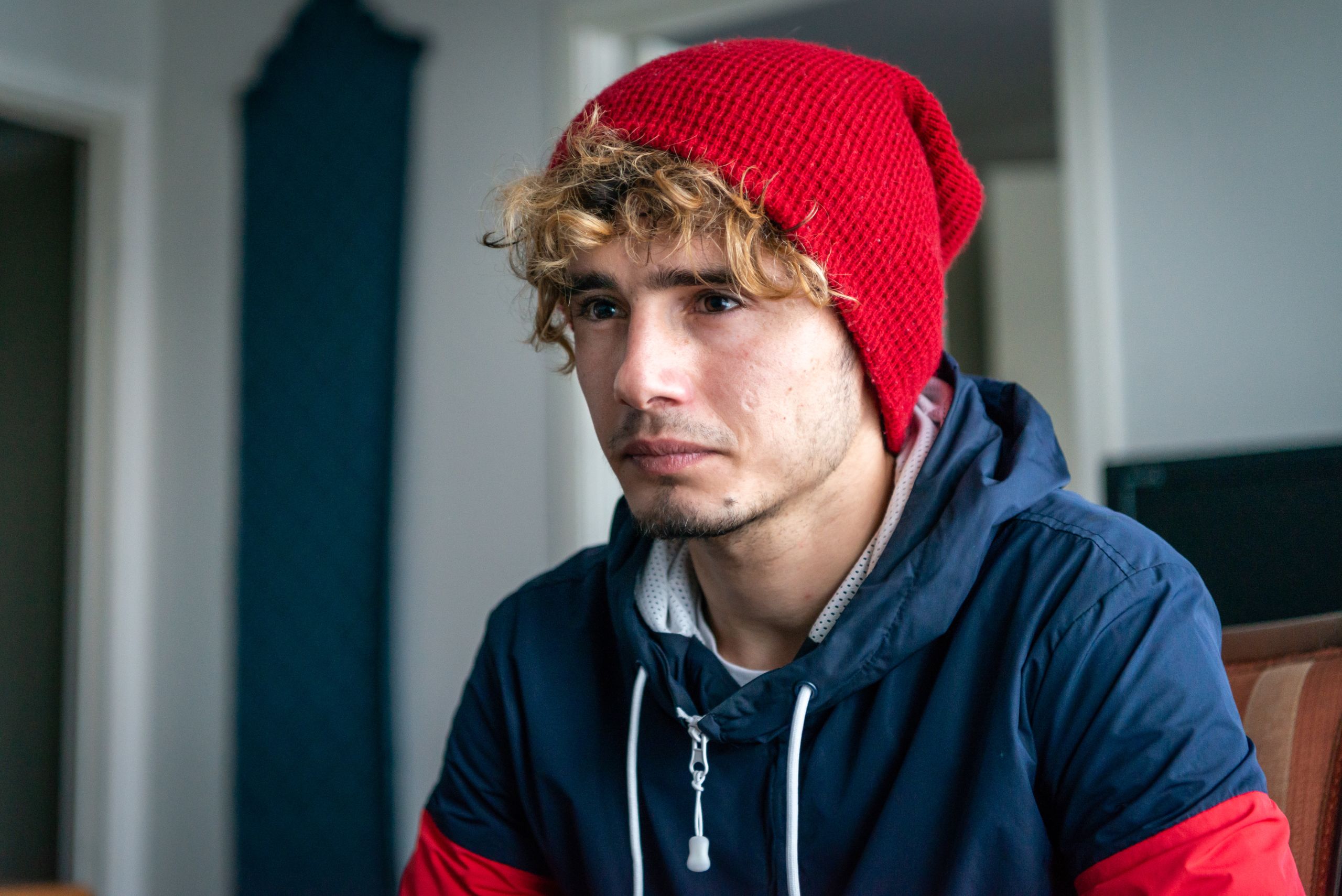
Mosab didn’t want to stay in Germany or Sweden. He wanted to go to Norway.
“He bought me a bus ticket. He said the bus trip would take three or four hours. Then I would be in Norway. He explained that when the police get on the bus, you’re there.
“I think I was the only foreigner on the bus.”
After a few hours, they stopped and the Norwegian police boarded the bus. Mosab stood up. He waved his thin arms and shouted as loud as he could: “Syrian, Syrian, Syrian.”
A police woman came over to him and hugged him.
One of the first things he did in Norway was to donate his shoes to the Red Cross.
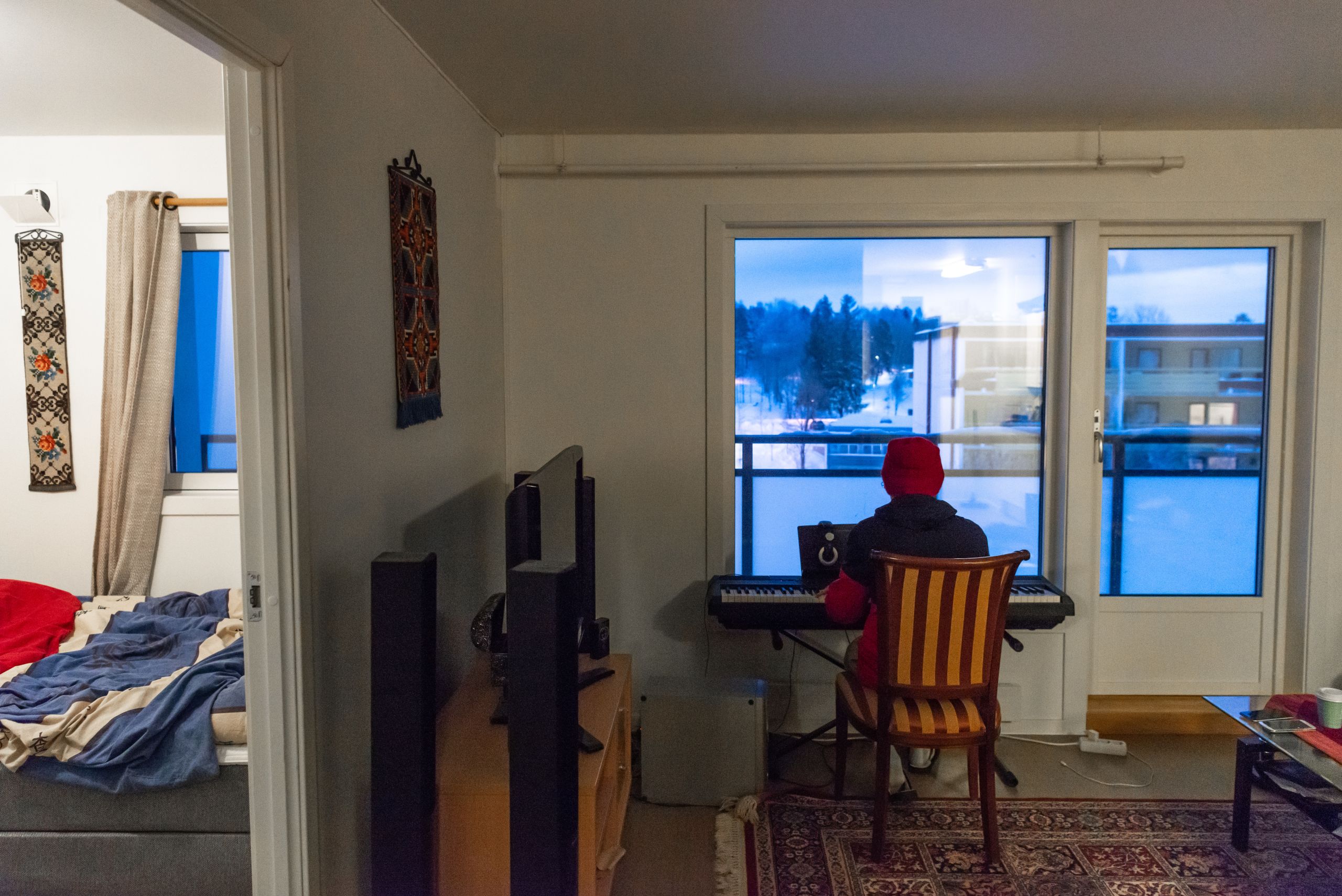
At the reception centre, there was an old piano, and Mosab learned to play on his own. Today, he composes music on his keyboard.

Mosab didn’t want to stay in Germany or Sweden. He wanted to go to Norway.
Mosab didn’t want to stay in Germany or Sweden. He wanted to go to Norway.

At the reception centre, there was an old piano, and Mosab learned to play on his own. Today, he composes music on his keyboard.
At the reception centre, there was an old piano, and Mosab learned to play on his own. Today, he composes music on his keyboard.

One of our most important tasks is to make sure that children and young people continue to learn, even in times of crisis. At school and through vocational training, children and young people return to a somewhat normal life and stability. This helps give them back hope and faith in a future.
NRC are present in 32 other countries. We build schools and classrooms, educate teachers, contribute with the right teaching materials and – not least – we invest in good teachers who can also help their students overcome trauma issues. In the coming years, we plan to focus more on helping young refugees struggling with trauma, in countries where there is war and conflict or in neighbouring countries where refugees have sought protection.
Read more about our work with trauma here.

Mosab’s home town of Manbij is located in northern Syria, just a few miles from the Turkish border. Kurdish militias have been in the area since they took the city from IS in 2016. The United States cooperated with the Kurds to oust IS.
Turkey considers the Kurdish militias terrorist organisations. Now that President Trump has decided to withdraw US troops from Syria, the Kurds have asked Syrian President Bashar al-Assad, who is allied with the Russians, to help repel a possible Turkish invasion. Today, there are Syrian government soldiers, Russian soldiers, Turkish soldiers and Kurdish militias outside Manbij.
On 16 January, 19 people were killed in a suicide attack in Manbij, according to the Syrian Observatory for Human Rights (SOHR).
The situation is tense.
Read more about our work in Syria here.


